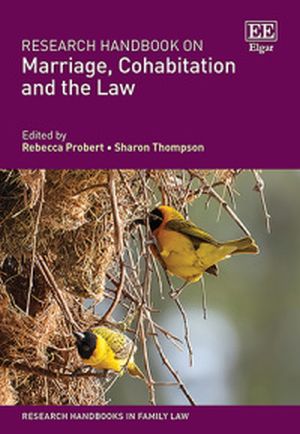
This insightful Research Handbook provides an international perspective on the key legal debates surrounding marriage and cohabitation. Drawing on the expertise of established and emerging scholars, a comparative approach is used to analyse cross-jurisdictional trends and divergences in relationship recognition and family formation.
Chapter authors explore the contested meanings and changing boundaries of marriage, the scope and role of alternative opt-in regimes, and the justification for conferring rights and responsibilities based on intimate relationships. Responding to the rising numbers of couples cohabiting without formalising their relationship, contributors examine how legal systems should respond to these changing patterns of relationships, and what it means to be a ‘family’ in different societies. Ultimately, they argue against imposing a particular view of what marriage should be, showcasing the importance of a diverse range of views and perspectives on the topic.
The Research Handbook on Marriage, Cohabitation and the Law presents a comprehensive overview of the field, and will be an invaluable resource for students and scholars of family law, law and gender, and law and society. It will also be an essential guide for policy-makers and legal practitioners seeking insights into the processes of family formation across jurisdictions.